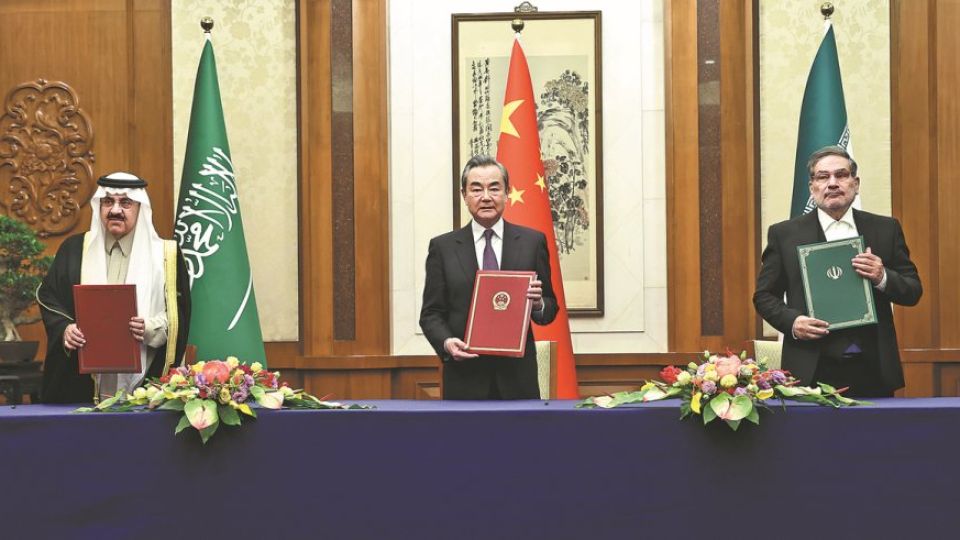March 20, 2023
TOKYO – The present situation is symbolic of the change in the power balance in the Middle East, with China exploiting the gap created by the decline of U.S. influence in the region. The question is, how will Japan protect its national interests amid the new circumstances?
Saudi Arabia and Iran, in a China-brokered deal, have agreed to normalize diplomatic relations. The two nations will reportedly open embassies in each other’s country and hold foreign ministerial talks within two months.
The Sunni Islamic state of Saudi Arabia and the Shiite Islamic nation of Iran have vied for regional supremacy under fierce sectarian conflicts. Diplomatic ties were severed in 2016 after Riyadh executed a leading Shiite cleric in Saudi Arabia.
The two countries have also been engaged in proxy conflicts in the civil wars in Syria and Yemen, each providing military support to elements close to their own nations. It would be welcome if the latest agreement could bring the civil wars under control and lead to an easing of tensions in the Middle East.
For Iran, which is suffering from economic sanctions imposed by the West, the restoration of diplomatic relations with Saudi Arabia and progress in relations with China could provide it with an opportunity to exit from isolation. If Tehran changes its hardline stance and shows compliance with the Iranian nuclear deal, it will contribute to stability in the Middle East.
However, there are circumstances in which the agreement could be difficult to welcome.
Historically, order in the Middle East has been maintained by the United States based on its alliances with such countries as Israel and Saudi Arabia. In the past decade or so, however, the weight of the U.S. diplomatic and security strategy has shifted to the Indo-Pacific region, and the Middle East has lost significance in relation.
With Saudi Arabia growing increasingly distrustful of Washington due to Riyadh’s concerns over its U.S.-reliant defense system and accusations from the United States of human rights problems, China has taken advantage of the situation. As a result, it is undeniable that U.S. prestige in the Middle East has been shaken.
China has steadily taken steps such as Chinese President Xi Jinping visiting Saudi Arabia last December and inviting Iranian President Ebrahim Raisi to Beijing in February. The latest mediation likely reflects Xi’s ambition to reorganize the international order centered on the United States and Europe into a China-centered one.
Beijing might possibly continue to increase its involvement in the Middle East and expand its interests there. Even if China were to invade Taiwan, leading to the United States, Europe and Japan imposing strict sanctions against Beijing, China may be calculating that it can use its good relations with oil-producing nations to cushion the blow.
As Middle Eastern countries maneuver deftly in the wake of the U.S.-China struggle, Japan, which depends on the Middle East for 90% of its crude oil imports, needs to rethink its strategy.
Japan should make use of its superior technology and experience in human resources development to further strengthen its relations with oil-producing nations and prevent energy procurement from becoming unstable.
(From The Yomiuri Shimbun, March 19, 2023)

